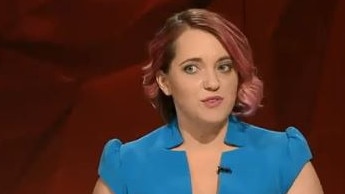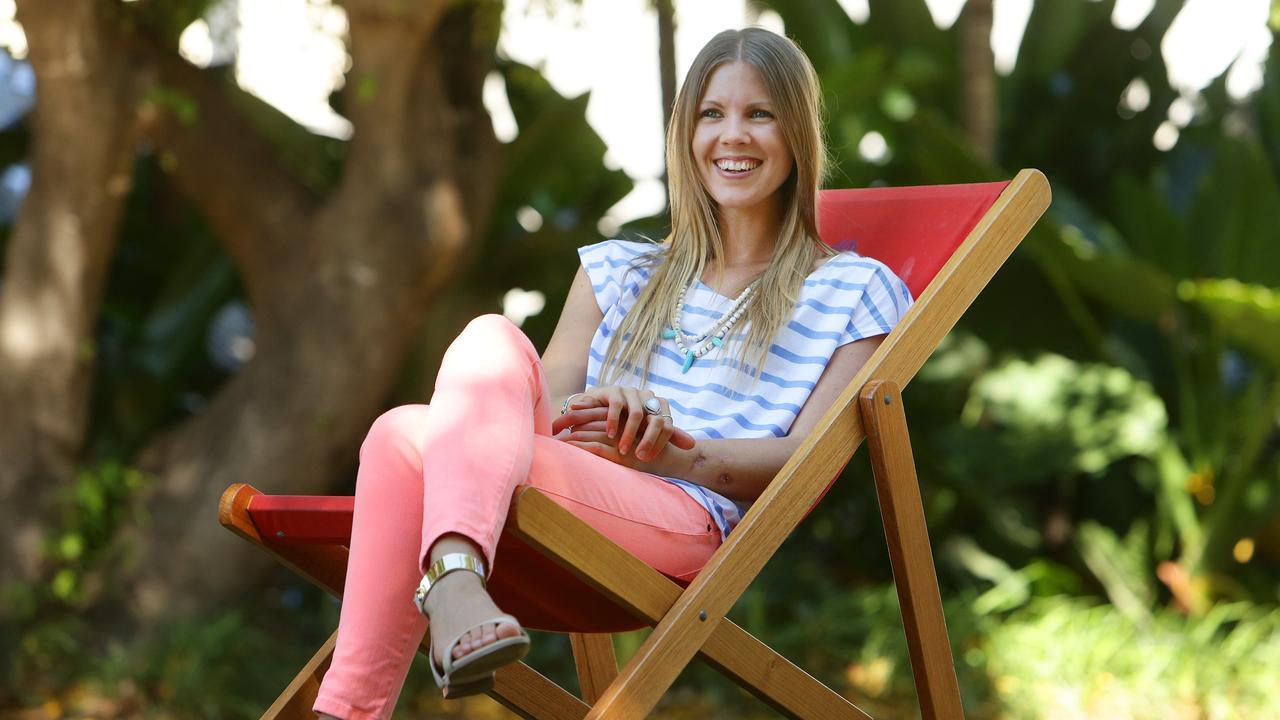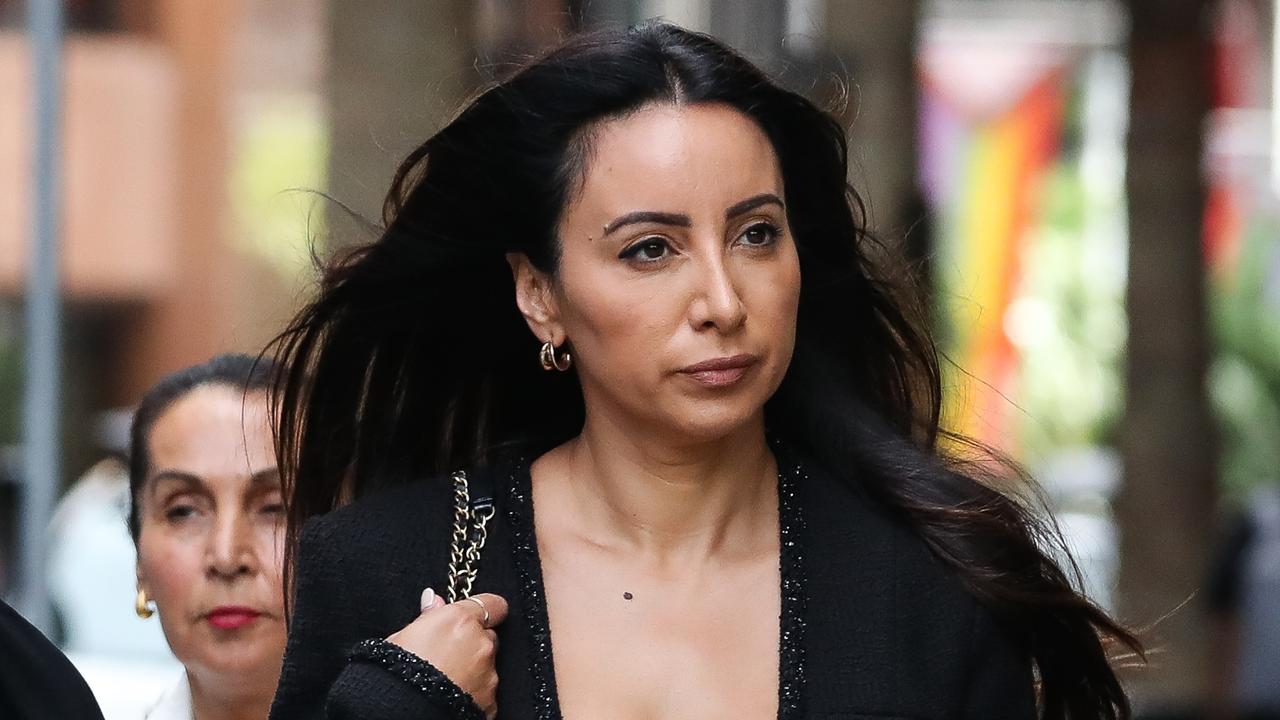Q&A: I was raped, feared police would victimise me says Aubrey Blanche
Atlassian’s head of diversity Aubrey Blanche tells how, after she was raped as a student, she feared police would victimise her.

Atlassian’s head of diversity Aubrey Blanche has told the ABC Q&A’s audience of her fear of being victimised by police after she was raped.
Amid debate over the safety of women in the wake of the rape and murder of 22-year-old Melbourne comedian Eurydice Dixon, Ms Blanche said society was not predicated on stopping violence against women, but was unfortunately built to create it.
“This is a part of our society and I think it’s time that we’ve had a reckoning on it,” she said.
“From tolerating the blokey jokes about domestic violence, to the way we build our institutions so that they protect the abusers instead of the victims”.
Ms Blanche described how she experienced a sexual assault while out drinking with her friends by someone who had allegedly offended before.
“When I was in college and I was raped, I didn’t go to the police because I didn’t trust that I would be anything but victimised. I thought I would be blamed,” Ms Blanche said.
An audience member, Jacinta, delivered a passionate speech about the importance of women’s safety following the 15,000-strong park vigil Ms Dixon last night.
Ms Dixon was raped and murdered in Princes Park 900m from her front door, where she had been walking after a comedy performance last week.
Jacinta claimed that most women did employ situational awareness in public to protect themselves, only to be “stalked, abused, harassed, raped and in this instance murdered”.
“The only other step would be to simply stay inside, curtailing our own lives massively,” she said.
“Voices of authority should be condemning the perpetrators, not the victims, in this case, and every case that should follow”.
Is this the murderous version of "boys being boys"? Where is the solution? @adblanche Michael Spence & @TimWattsMP respond #QandA pic.twitter.com/xXRNREuRJR
— ABC Q&A (@QandA) June 18, 2018
Dr Spence said victim blaming was a “deep cultural issue” that needed to be stopped and applauded the thousands of Melbourne locals who visited the park where Ms Dixon was killed to pay their respects.
“What makes me proud as an Australian is that people across the country … came out in force to say, ‘Actually, we’re not going to be a part of this. We’re not going to have this anymore’,” he said.
Ms Reynolds took aim at the Victoria Police who placed responsibility on Australian women to protect themselves following Ms Dixon’s death.
“The fact that the police instinctively warned other women to take proper care was, I think well-intentioned but so misguided, because it sends absolutely the wrong message out to the community,” she said.
“It was not her fault. It was the perpetrator’s fault”.
Ramsay Centre:
Two Sydney University students and members of the Socialist Alternative quizzed their Vice Chancellor, Michael Spence on the ABC’s Q&A program overnight about his negotiations with the Ramsay Centre for Western Civilisation.
The university is currently in talks with the centre to introduce a dedicated course in Western civilisation into the curriculum.
One student told Doctor Spence that “universities shouldn’t be prop machines that are available for purchase by the highest bidder”.
“I think it’s pretty clear to anyone paying attention that they seek to whitewash colonialism and promote racism and war,” she said.
She asked Dr Spence if he planned to follow Australian National University, which recently rejected the Centre’s multimillion-dollar proposal on “a matter of principle”.
Dr Spence said the university was in talks with the centre and the opportunity to support humanities studies was “on the table”.
“It’s not the case that the Ramsay Centre has a course that would be slotted into the university, that’s not something we would agree to,” Dr Spence said.
“The course that we have talked about with Ramsay as a kind of draft and the sorts of things we might do … is a course developed by academics at the University of Sydney,” he said.
How do we subvert racist rhetoric from people in power in the corporate, political & academic world? @lindareynoldswa @TimWattsMP Michael Spence & @adblanche respond #QandA pic.twitter.com/UcxdHQhNmz
— ABC Q&A (@QandA) June 18, 2018
Ms Blanche said the last thing universities needed was more courses looking at the world “through the Western canon”.
“The majority of history has been written by the colonisers and the conquerors who have driven the narratives of people like where my family is from in Latin America,” Ms Blanche said.
“If we’re talking about universities being the bastion of places that are helping people think critically about the future … why wouldn’t we be investing in de-colonial narratives?”
She advocated for students “steeped in the Western tradition” to be taught narratives outside of their own.
.@adblanche thinks we should invest in not looking at the world from the narrative of colonisers. Michael Spence agrees #QandA pic.twitter.com/sw7zsvDh9m
— ABC Q&A (@QandA) June 18, 2018
Her comments sparked a wave of applause from the audience.
The debate followed comments made by former Prime Minister Tony Abbott that the “proposed course is not merely about Western civilisation. It’s in favour of it.”
Western Australian Liberal Senator Linda Reynolds said she was glad that Mr Abbott’s comments, however they had been perceived, had sparked a national debate today about historical texts.
“Ultimately, it was Western civilisation that gave birth to academic freedoms to universities, individual freedoms of thought, speech and worship,” Ms Reynolds said.
“There’s some good things that have come out of that tradition”.
ABC Privatisation:
In the wake of the Liberal Party conference at the weekend, Western Australian senator Linda Reynolds was asked to weigh in on talks around privatising the ABC.
While Prime Minister Malcolm Turnbull announced the public broadcaster would not be privatised, Ms Reynolds said that discussions around its future were legitimate.
“That’s $1.2 billion of taxpayers’ money going into the ABC every year and I think it’s valid for us in parliament and for all of you to actually question is that money being best spent,” Ms Reynolds said.
“I hear frequently from people in rural and regional areas in Western Australia that they don’t feel that they get enough service from the ABC”
She challenged Q&A host Tony Jones to bring the program to Western Australia to hear from locals about their thoughts on whether the broadcaster was delivering.
“You might have to increase our funding just a little bit, Linda,” Jones said to the amused crowd.
If ABC was privatised, how could you guarantee its independence? @lindareynoldswa @TimWattsMP & Michael Spence respond #QandA pic.twitter.com/tfcaKrOzhU
— ABC Q&A (@QandA) June 18, 2018
Ms Reynolds clapped back, claiming that her constituents in WA were paying for a large portion of Jones’ salary and deserved to be heard.
“Come to Port Hedland and the Pilbara, where 40% of our nation’s salary has been generated and probably 40% of your salary is generated from there,” she said.
Federal Member for Gellibrand Tim Watts described the ABC as a “precious national asset” and said its autonomy should be defended.
“In an age of weakening democratic institutions, fracturing media markets, the ABC is that rare beast where all Australians come together across the ideological spectrum to have the same debates, to talk as we are here as citizens,” Mr Watts said.
Donald Trump:
The discussion turned to US President Donald Trump’s behaviour during his recent meeting with North Korean leader Kim Jong-un and his attendance at the G7 nations summit in Quebec.
One Korean Australian audience member said he had been blown away as he watched the two leaders in a historic “handshake for peace”.
“In my opinion, it was a great start for two countries who have been an enemy of each other for the last 70 years,” the man said.
Should we be sceptical of the North Korea Summit's results because of its lack of detail? Michael Spence & @adblanche respond #QandA pic.twitter.com/kkIoVfMd0K
— ABC Q&A (@QandA) June 18, 2018
The panel was asked to comment on Trump’s erratic behaviour and whether or not Australia should consider moving away from it’s alliance with the US and strengthen it’s relations with a rising superpower like China.
Ms Reynolds defended the US President, claiming that while he may be erratic and disruptive, she didn’t think it was necessarily a bad thing.
“Let’s face it, he has got further than any other president has in the last 20 years in terms of communicating directly with the North Korean regime,” she said.
“It is a very good thing he has got this far in his own very unique way”.
She said Australia should “absolutely not” be hunting for a new ally.
“Now is the worst time to move away from our liberal democratic allies. We have fought with them for over 100 years, they’re our friends, the US, Great Britain, New Zealand and Canada”.
Racism in Australia:
A question from an American audience member asked the panellists what could be done to avoid Australians following in the footsteps of the US, which propagates “racist and xenophobic rhetoric” among its institutions and leaders.
Should we be sceptical of the North Korea Summit's results because of its lack of detail? Michael Spence & @adblanche respond #QandA pic.twitter.com/kkIoVfMd0K
— ABC Q&A (@QandA) June 18, 2018
“As an American who has been living in Australia, I’ve watched the same racist and xenophobic rhetoric that gave rise to Trump in the public discourse here,” the man said.
“Using America as a cautionary tale, what can be done to subvert this trend?”.
The question followed the leaking of a photograph of Australian soldiers flying a Nazi swastika flag from their armoured vehicle during an exercise in Afghanistan in 2007.
Ms Reynolds said while the incident was “completely inappropriate”, it had occurred 11 years ago and it did not suggest a culture of hidden racism among Australia’s armed forces.
“As soon as it was identified the chain of command took it down and the appropriate action was taken,” she said.
“If the investigations prove that they are correct, those people deserve to have the full force of military law thrown at them,
“But it is so important when we’re talking about this we don’t inadvertent tar the reputations of the 80,000 men and women who are doing extraordinary things for us every day”.
Dr Spence said Australia did have an issue with racism “just like every other country”.
“The problem is we, as Australians, don’t talk about it,” he said.
“We say we don’t have a problem with racism, like Linda, or we say we used to have a problem with racism and we don’t anymore because we’re really nice,”
“It’s just not true. We need to be grown up and say, actually, this is a challenge for our country”.



